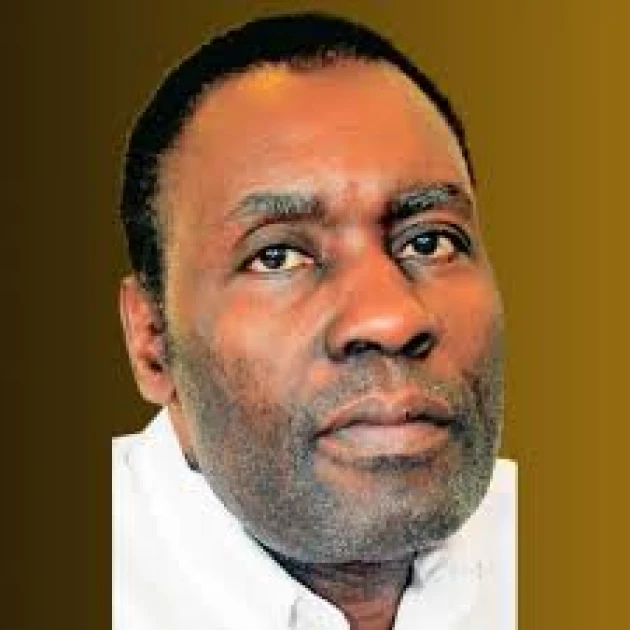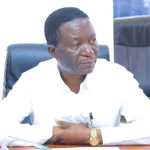The death of veteran sports journalist Stephen Ongaro in April 2025, robbed the sporting fraternity of one the best sports libraries ever.
As a biography writer, I was planning to contact him for help in putting together captions for some old pictures intended for an upcoming biography of a former prominent boxing official. It was not to be.
In the course of his duty, Ongaro was lucky to be one of the few surviving reporters who were privileged enough to enjoy the proverbial ringside seat at every major boxing event in and outside Kenya.
There is stack difference between how boxing was reported and how it is done nowadays.
Describing a boxer has never been easy and it is through Ongaro’s pen that boxing fans enjoyed use of words like ‘pugilist’ particularly in reference to a professional boxer.
When reporting a local or international duel, Ongaro would intentionally bring the ring to his readers using vital statistics to describe and profile a ‘pugilist’ mentioning his hometown, nickname, boxing style (whether southpaw or orthodox) weight category, height, arm length, fist size and punching power, biceps, previous fights statistics, coach, training regime and finally strength and weakness. With all these his fans were good to go.
Ongaro’s time (1977-2008) coincided with Kenya’s golden era in boxing as a sport.
From Philip Waruinge turning professional in Japan after the 1972 Munich Olympics Games, Steven Muchoki winning Gold at the 1974 Commonwealth games in Christchurch New Zealand and fast forward to Robert Wangila winning gold at the 1988 Seoul Olympics.
Ongaro did justice to the period when corporate sponsors valued sports with boxing enjoying support from companies like Kenya Breweries, British American Tobacco (BAT), East Africa industries (now Unilever), Coca Cola and many more.
The Armed Forces had active boxing clubs which produced some of the finest boxers to represent Kenya.
Our boxing association was ably headed by the versatile Major (Rtd) Marsden Madoka who ensured the country produced the best and most competitive teams.
Having grown up in Nairobi’s tough Eastlands suburbs, Ongaro had a personal touch with most of Kenya’s boxers who were products of rough neighbourhoods anyway.
He had the advantage of getting precious insights around their lives and would always be way ahead of other reporters in getting the much-coveted scoop for the boxing pages.
One of the most memorable scoops he popped up happened when during the 1984 Los Angeles Olympics.
One of Kenya’s celebrated heavyweight boxers James ‘Demosh’ Omondi who was also the flag bearer was unceremoniously sent back home before the event began.
Although the official line was that Demosh was booted out of the team for gross indiscipline, nobody explained that the boxer had questioned why their allowances had not been paid as promised.
Many years after the matter had settled and was declassified, it became clear that besides asking for their allowances, Demosh (a soldier with KDF) had actually roughed up the official who was ironically a senior army officer.
Ongaro was always very quick at tracking down retired boxers and sharing their plight with most of them languishing in poverty and squalor.
He constantly reminded boxing enthusiasts about the neglect and contempt in which the Government had subjected Olympic medallists who brought glory to our country in various games.
His most memorable articles exposed the fate of one of Kenya’s boxing finest Philip Waruinge wasting away in Nakuru, Ibrahim Bilali working as a tout, Stephen Moi living in Siaya but blind, James Omondi entertaining people as a one-man guitarist and Dick ‘Tiger’ Murunga on a wheelchair suffering from an unknown disease.
Ongaro just never left them to disappear into oblivion, he was forever there for them like a loyal comrade.
Besides, covering their lives outside the ring, Ongaro was attached to many boxers whose nicknames he coined when they started their careers.
He was credited for giving among others Conjestina Achieng the moniker ‘Hands of Stone’; Thomas Okusi ‘Black Rhino’; Ibrahim Bilali ‘Surf’ and Robert Wangila ‘Kid’.
After the death of another veteran sports historian Hezekiah Wepukhulu many years ago it became evident that there was need to document Kenya’s sports history for posterity.
With veterans like John Nene, Omulo Okoth, Elias Makori, Gichinga Njoroge and Waigwa Kiboi actively out of newsrooms or mainstream media, a great chunk of institutional memory may slowly fade away.
Others like Peter Njenga and Larry Ngala are still penning their columns and constantly ensuring there is a regular reminder about how things were back in the days.
As we bid farewell to Stephen Ongaro, we hope one day there shall be a boxing hall of fame where great names like Ongaro nicknamed ‘Don King’ by his fellow scribes would be inscribed on the name plate indicating how immortal they were in our sports journalism.
Bethuel Oduo is a Sports Historian



